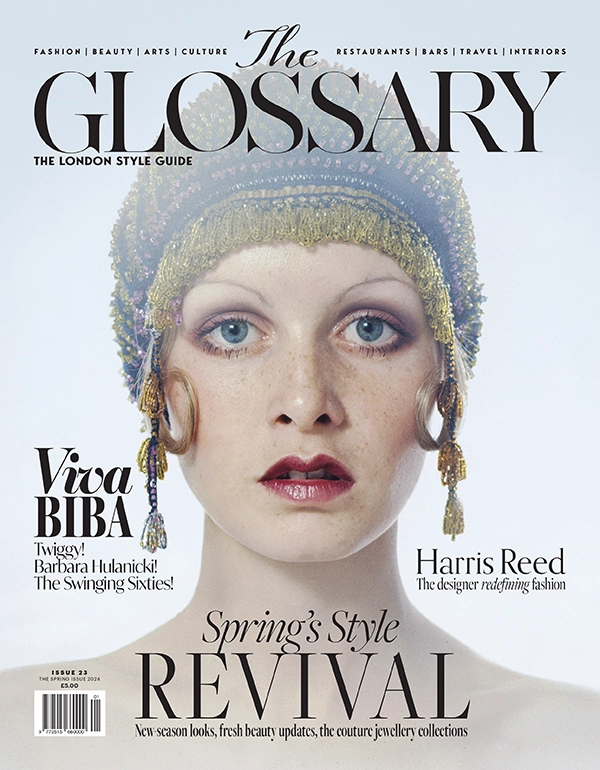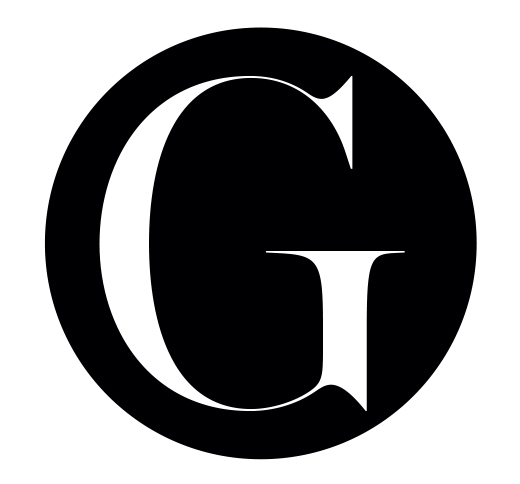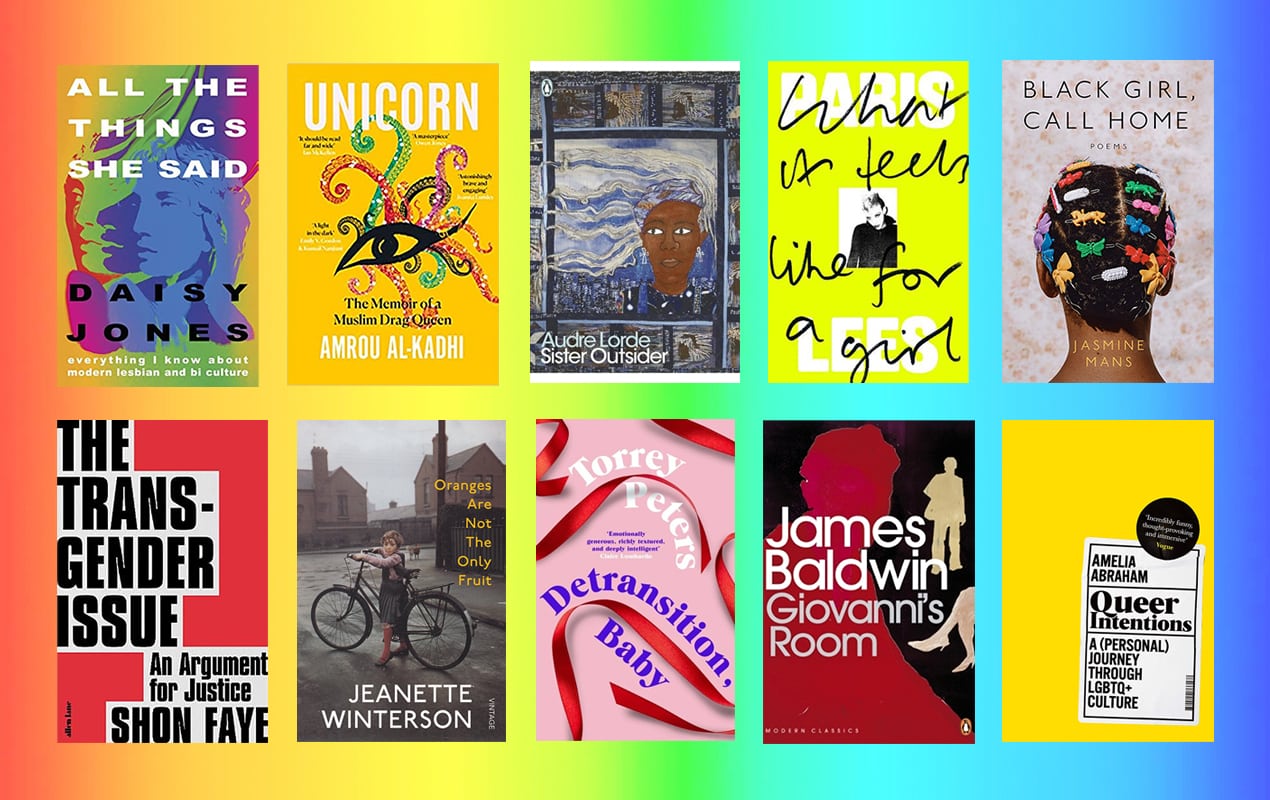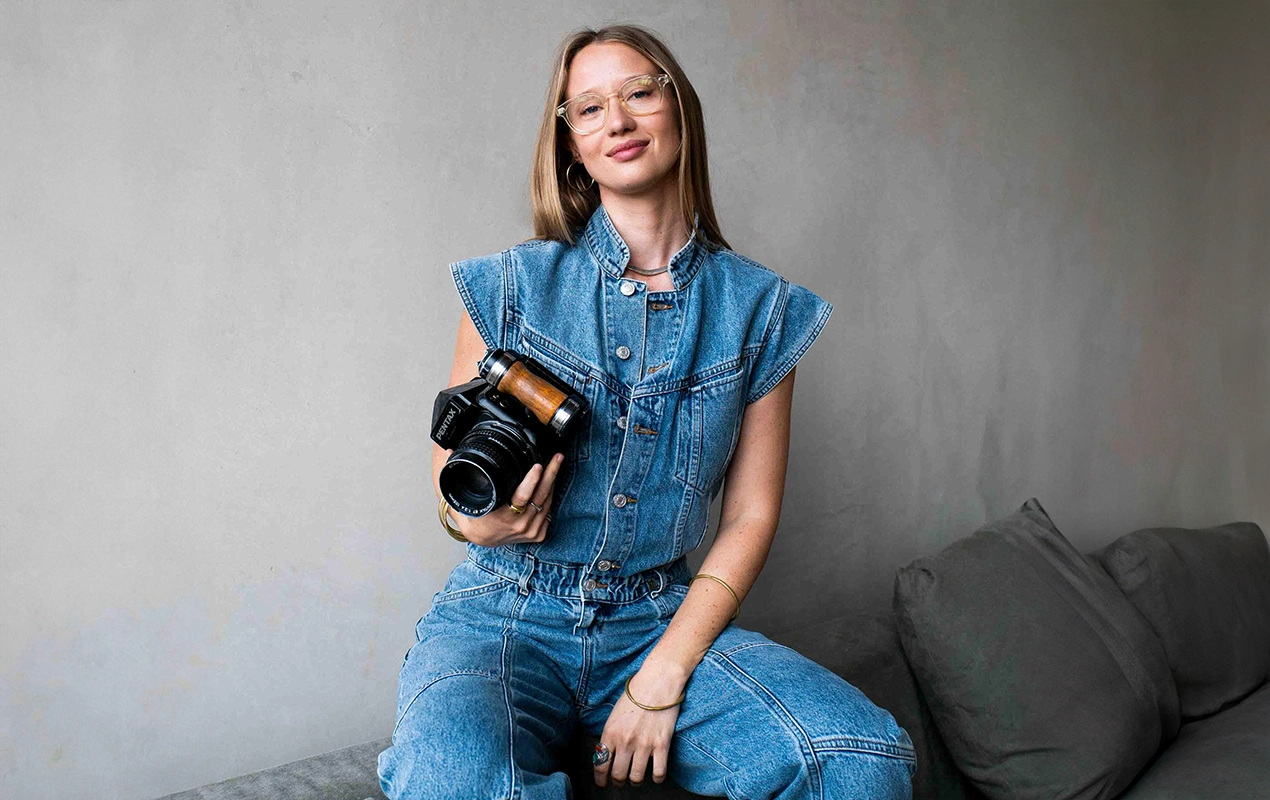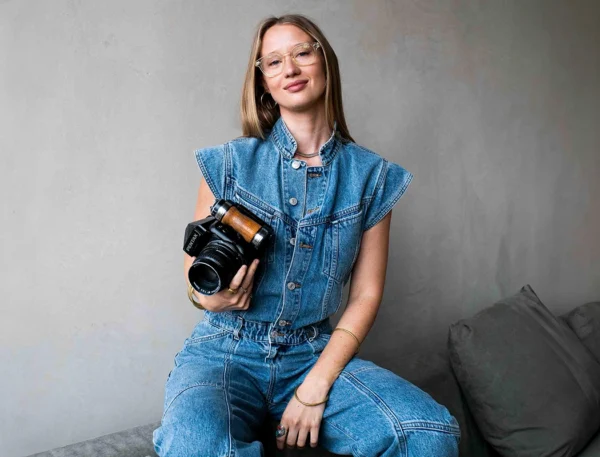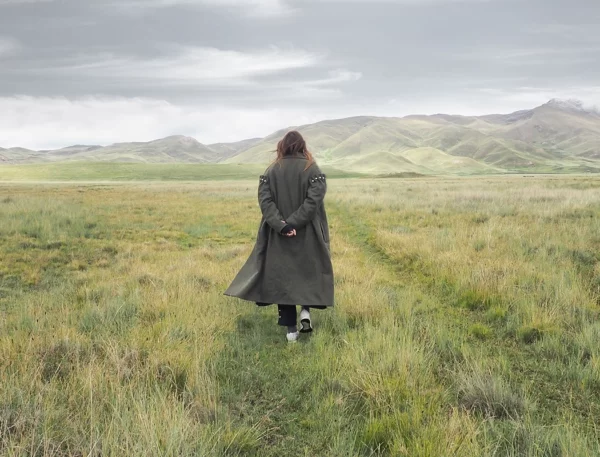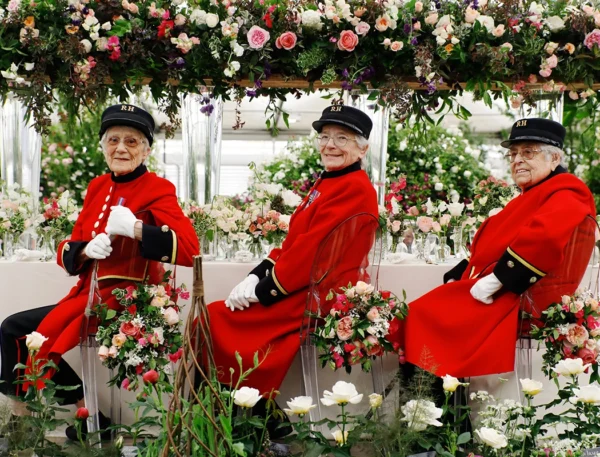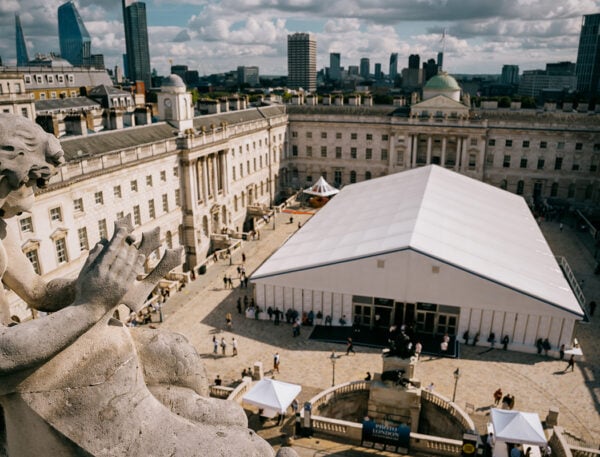18 inspiring LGBTQ books to read this Pride Month and beyond
With London Pride 2023 on the horizon, celebrating the queer community is at the forefront of our minds, and immersing yourself in a brilliant LGBTQ book can be one of the most joyous ways to do this. From historical biographies offering a crucial chronicling of gay culture to deeply moving personal memoirs, each of these works play an important role in educating, spotlighting and celebrating the queer community. Here are the best new and classic LGBTQ books to add to your reading list this Pride Month.
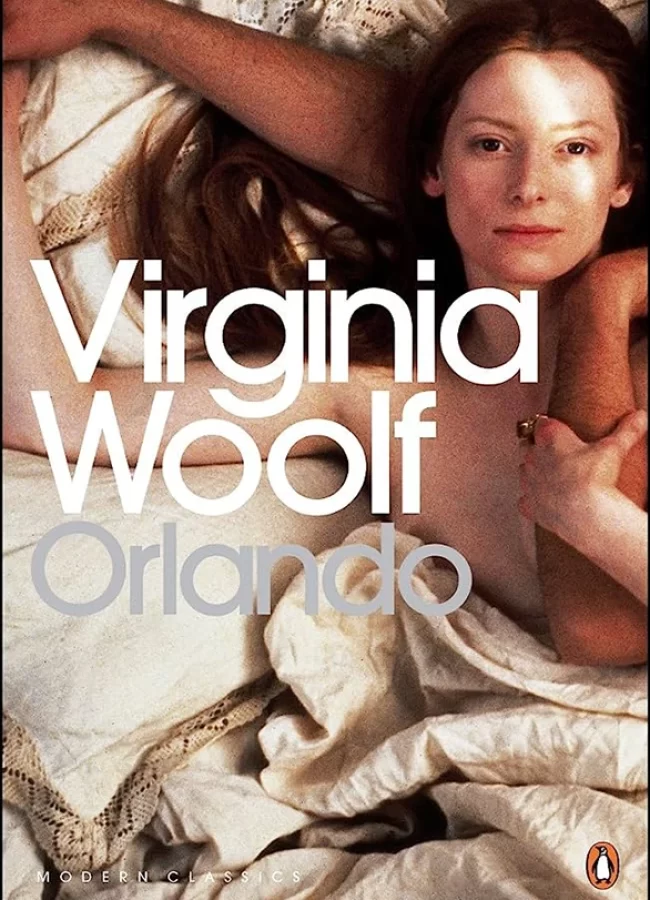 Pin
Pin This seminal work by Virginia Woolf has found itself back in the spotlight of late, thanks to a stellar West End adaptation starring Emma Corrin as the titular Orlando. Ground-breaking when it was first published in 1928, the novel spans three centuries and opens as Orlando, a young nobleman in Elizabeth I’s England, awaits a visit from the Queen. Halfway through the story Orlando awakes to find that he is now a woman, with the book going on to satirically explore the role of women in the 18th and 19th centuries.
Woolf wrote the novel as an ode to her lover Vita Sackville-West, who liked to dress as a man, and the story reveals an idealised version of the kind of life they might have had together, had they not found themselves living almost 40 years before homosexuality was legalised in England and Wales. The book has long been hailed as a feminist masterpiece, and has gone on to become one of Woolf’s most celebrated and popular novels.
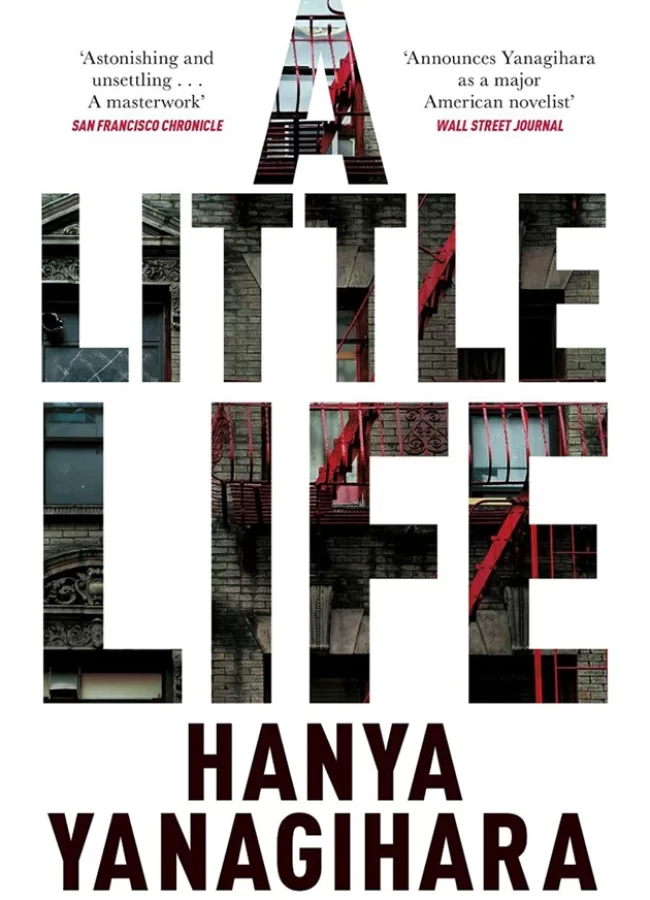 Pin
Pin A million-copy bestseller that was shortlisted for the Booker Prize and hailed as “the great gay novel”, few books have resonated with audiences quite like A Little Life. Weighing in at 814 pages and tackling difficult themes of toxic relationships and child abuse, it is not a light read. But those who can persevere with this powerful and moving tome will be rewarded in spades.
The novel centres around four university graduates – Jude, Willem, JB and Malcolm – as they begin their lives in New York. Yanagihara captures the intensity of their friendship in all in its highs and lows, as it deepens and darkens over the decades. But the friends soon come to realise that it is Jude, an increasingly broken man scarred by an unspeakable childhood, that demands the most of their love and attention. Touching on both the intolerable cruelty of humanity and its bottomless capacity for love and endurance, it’s a book that is almost impossible to forget.
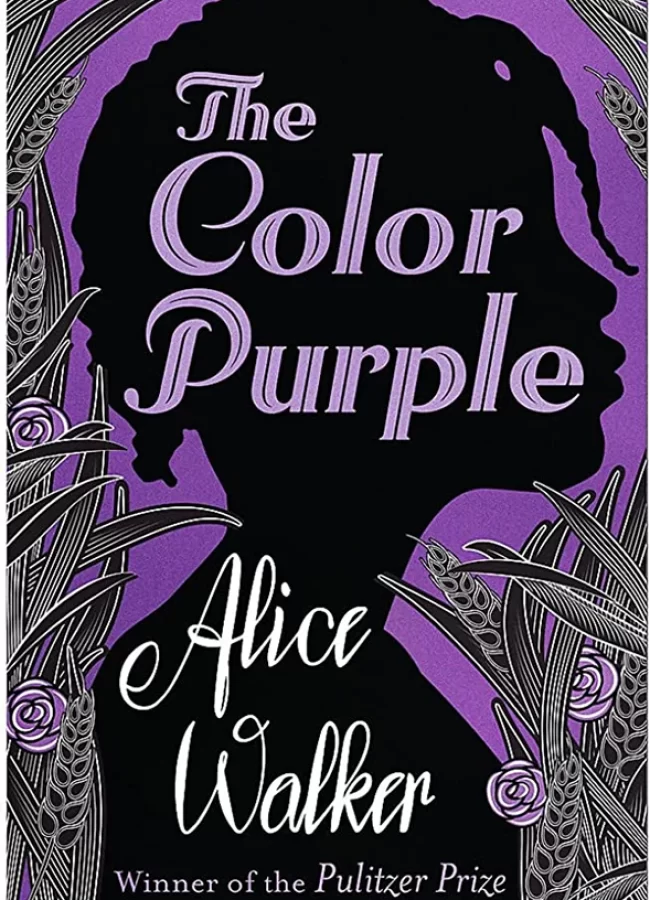 Pin
Pin A modern classic, The Color Purple won a Pulitzer Prize in 1983 and instantly transformed Alice Walker into a household name. Set in the deep American South between the wars, the book follows the plight of Celie, a young woman who lives in poverty and has experienced physical and sexual abuse at the hand of her father, and later her husband. Told through a series of letters spanning 20 years, first from Celie to God and then to her beloved sister Nettie, whom she is separated from, it viscerally captures the lives of African American women in early 20th-century rural Georgia.
When Celie meets the glamorous Shug Avery – a woman who has taken charge of her own destiny – she slowly starts to discover the power and joy of her own spirit, all while exploring her sexuality. Deeply compassionate and beautifully imagined, it’s a life-affirming tale of love and redemption.
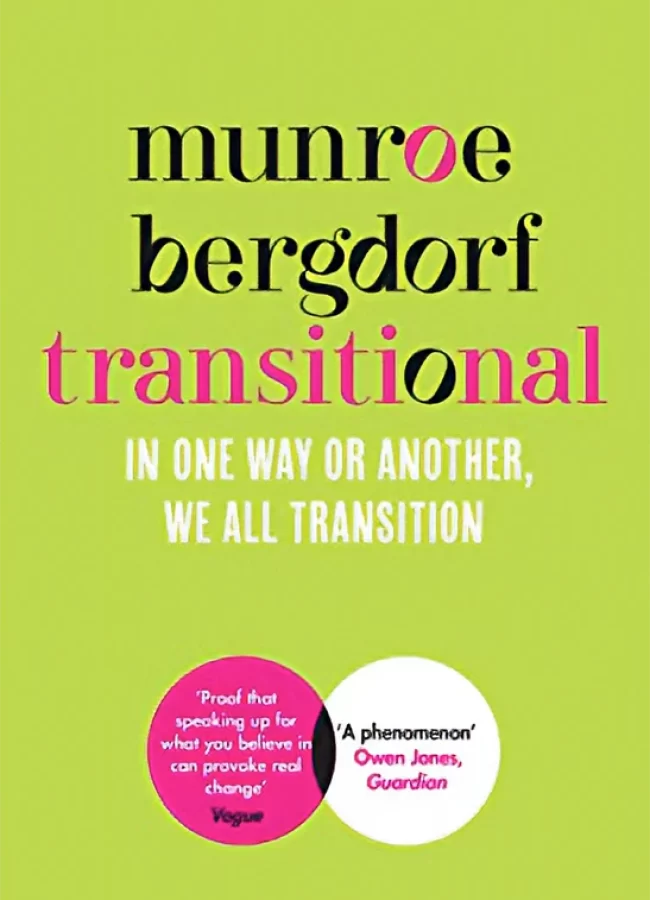 Pin
Pin Bloomsbury, £13.99
Internationally renowned activist and model Munroe Bergdorf launched her life-affirming book, Transitional, to highlight how transition is something that every person faces in every phase of life, regardless of how we identify. As she writes: “We all transition. It’s what binds us, not what separates us.”
In the book, Bergdorf shares reflections form her own life to illustrate how transitioning is an essential part of all of our lives, as well as speaking to key experts, change-makers and activists about just how deeply ingrained transitioning is in human experience. The result is a powerful, thought-provoking guide showing how our differences can be harnessed as a tool to heal and build community, rather than tear it apart.
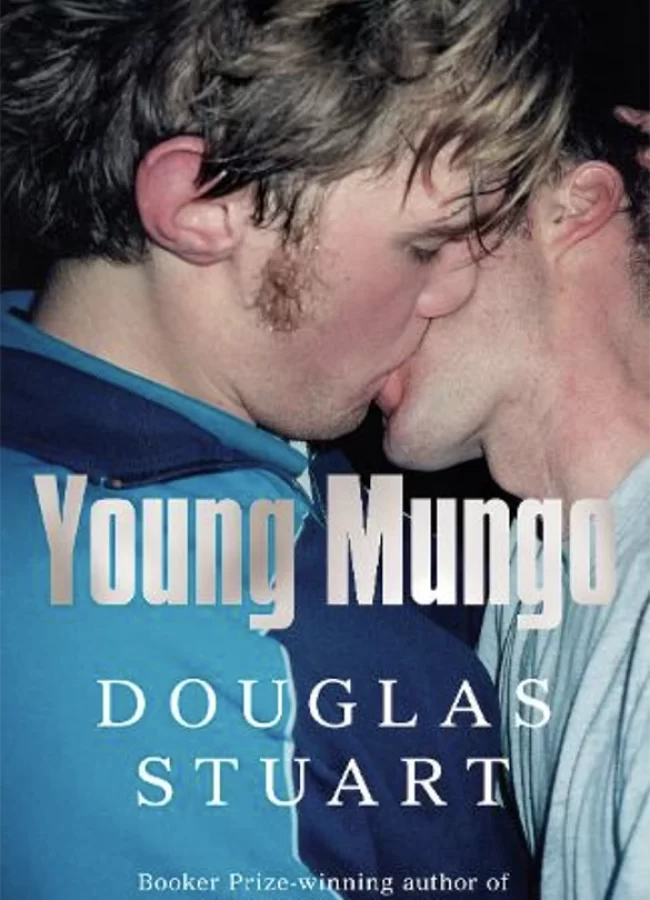 Pin
Pin After astonishing readers with his debut novel Shuggie Bain, the Scottish designer-turned-Booker-prizewinning-author is back with a second novel that promises to be just as heart-wrenching. Returning to Glasgow, this powerful tale offers both a vivid depiction of working class life in the Scottish city and a sensitively and beautifully drawn picture of two young men exploring their sexuality and embarking on a potentially dangerous relationship.
In a sort of rugged Scottish Romeo and Juliet, Young Mungo follows the Protestant Mungo and Catholic James, who come from opposite sides of the hyper-masculine and violent housing estates. Destined to be enemies, the two instead become best friends, and when that friendship begins to give way to love and desire, Mungo in particular struggles to come to terms with his feelings. Their world is unsafe, and this relationship makes it more so, meaning Mungo finds himself desperately trying to hide the truth, especially from his domineering, gang-leader brother. Searing and gripping, this lyrical work offers a brutal yet deeply moving look at the ideas of masculinity, family loyalty and the violence faced by so many queer people.
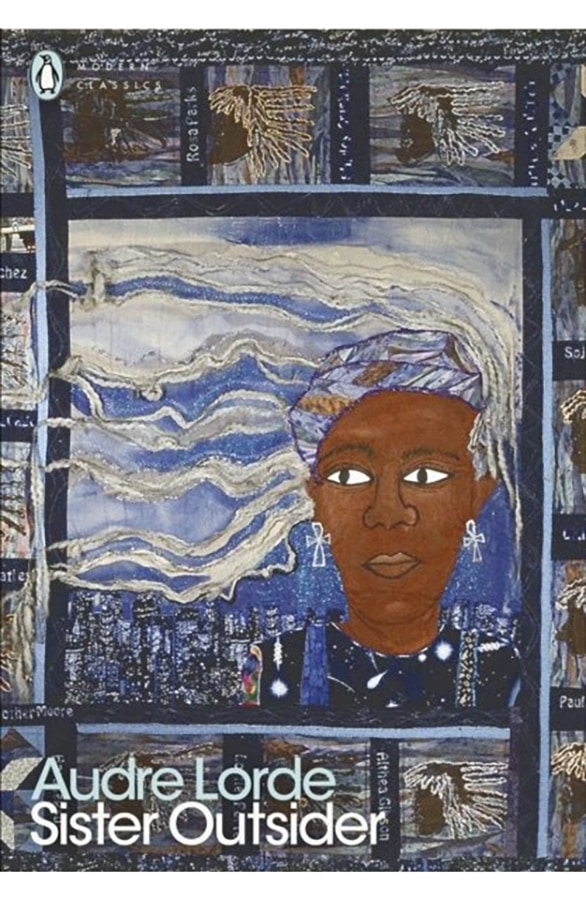 Pin
Pin Audre Lorde was a revolutionary Black feminist; a self-described “black, lesbian, mother, warrior, poet,” whose activism and published work speaks to the injustices of racism, sexism, classism, capitalism, heterosexism, and homophobia. It was during the 1960s that her work was published regularly.
In Sister Outsider, originally published in 1984, Lorde features 15 essays and speeches that illuminate her deep-seated and longstanding concerns about ways of increasing empowerment among minority women writers, as well as the absolute necessary analysis of the concept of difference – the difference felt according to sex, race, and economic status.
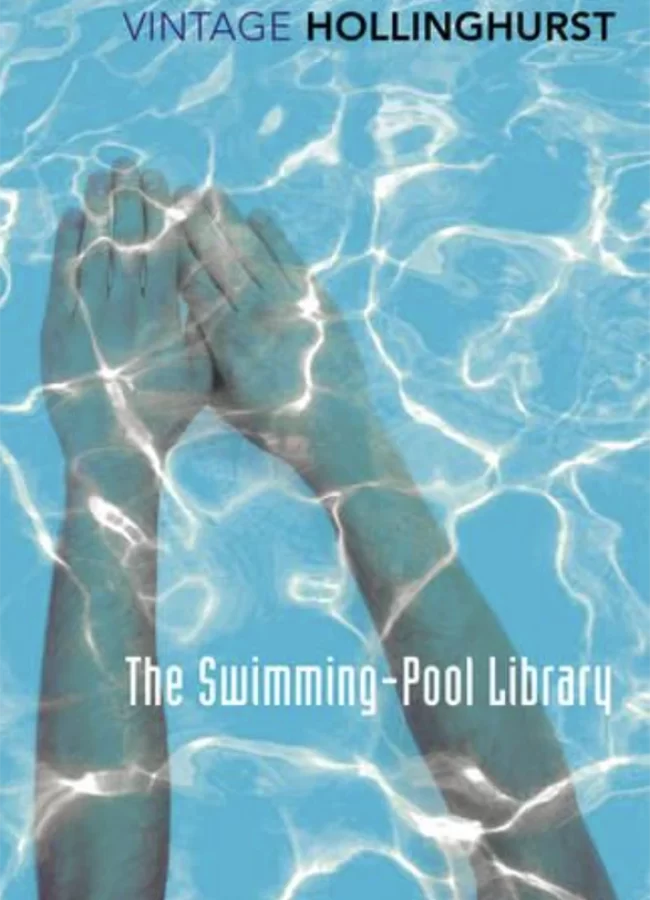 Pin
Pin The 1988 novel by Booker Prize-winning author Alan Hollinghurst was a groundbreaking work, credited with being the first major British novel to offer an insight into modern gay culture, with honestlty depicted characters full of complexities.
Set in 1983 London, the protagonist is Will, a privileged and sexually irresistable gay may who has enjpyed all the perks of a glamorous lifestyle supported by his trust fund. But a chance encounter with an elderly man in a public lavatory, during which he managed to save his life, leads to a turn of fate for young Will. The elderly man turns out to be an aristocrat, and he’s in search of a biographer. When Will agrees to take a look at his diaries to see if he could help, he uncovers an intimate and surprising insight into twentieth-century gay repression, and is forced to reevaluate his perspective on his own life.
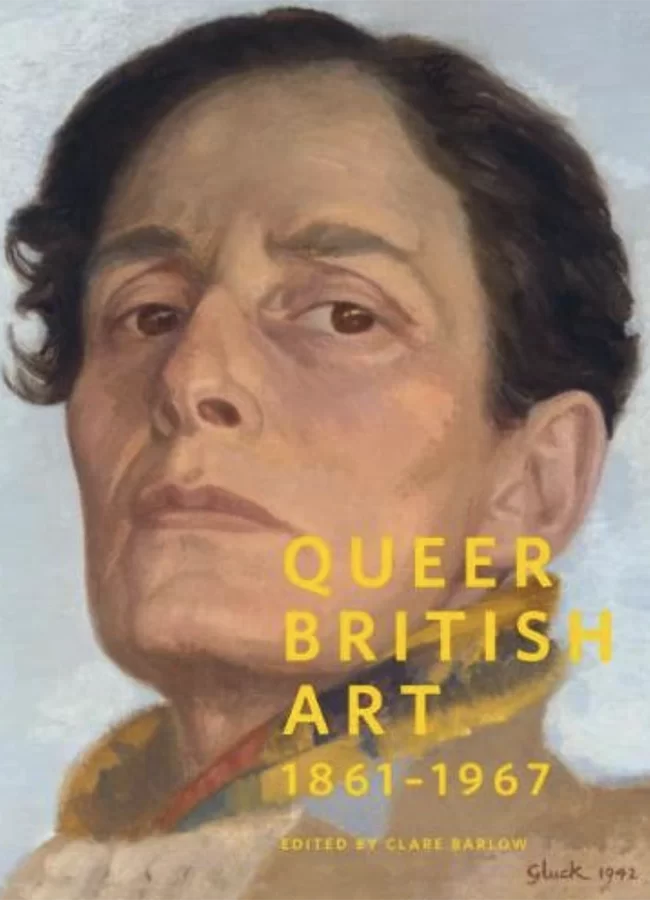 Pin
Pin Published to accompany the 2017 Tate Britain exhibition of the same name, curator Clare Barlow’s beautiful art book explores the relationship between landmark legal moments for the queer British community and the art of the period. The dates covered coincide with two monumental legal rulings — In 1861, the death penalty for sodomy was abolished in Britain, but it wasn’t until a century later that sex between consenting men in England and Wales was finally decriminalised.
During that time, expression of gender and sexuality radically shifted across the arts, as creative individuals — from artists to collectors — began to push at the boundaries of artistic expression, using various mediums to explore transgressive identities, experiences and perspectives. The resuliting works ranged from the deeply personal, celebrating lovers and desire, to the political, using public exhibitions to forge a new sense of community amongst queer individuals. Brought together in this tome, Barlow offers a stunning homage to the wealth of queer creativity in Britain from this important period.
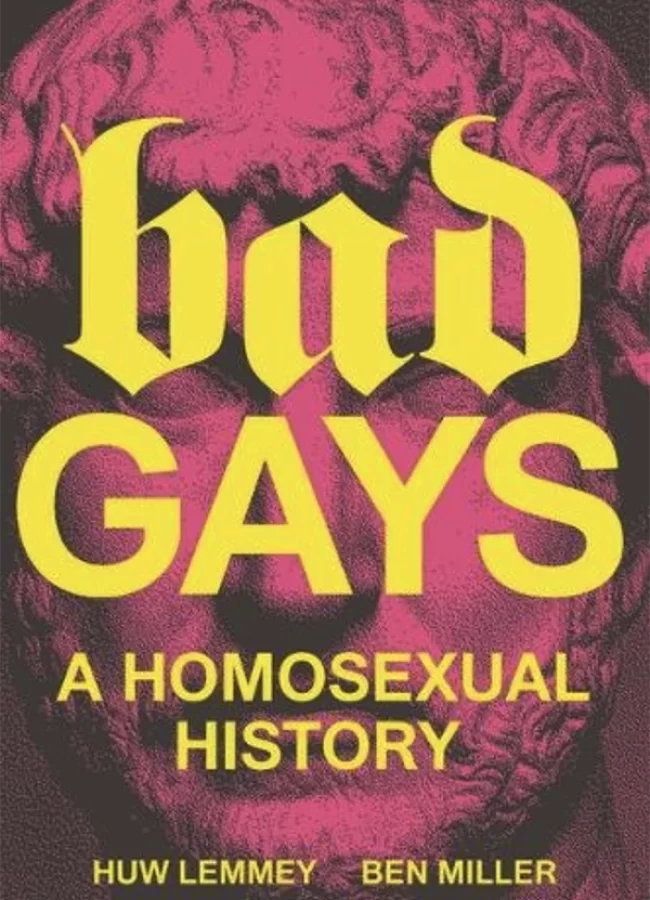 Pin
Pin Based on the hugely popular podcast series, Huw Lemmey and Ben Miller fascinating biographical history challenges the classic historical narrative that has tried to categorise historic queer figures as heroes, pioneers or martyrs. Instead, the duo argue, it’s important that the full breadth of characters — including the dastardly and unexemplary — are properly detailed. Subverting the notion of gay icons and queer heroes, the duo explores what can be learned about LGBTQ history, sexuality and identity through its villains.
From the Emperor Hadrian to notorious gangster Ronnie Kray, Bad Gays details the sordid and scandalous tales of fascist thugs, famous artists, debauched bon viveurs and every type of character you could imagine. Weaving together incredible life stories with a wider consideration of how they counter mainstream assumptions of sexual identity, this revisionist history is an eye-opening read.
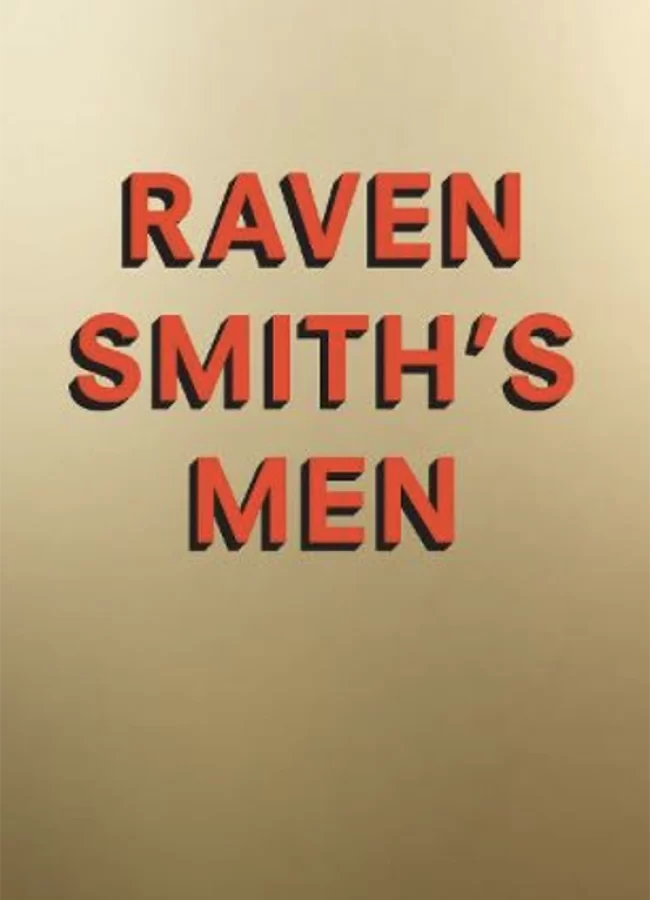 Pin
Pin One of the funniest men on Instagram, Raven Smith’s second book is as sharp and punchy as his debut, Trivial Pursuits, and arguably much more moving. Oscillating between memoir and commentary, the thought-provoking work explores the various nuances of masculinity through Smith’s various relationships with different men, from lovers, to mentors, to his own father.
While the writing is as witty and snort-inducingly funny as you would hope, Smith’s approach to unpacking his relationship with men and masculinity is balanced and without agenda. The reader joins Smith on the journey of discovery, as he winds down paths of exploration, observing the absurdities of masculinity while recognising his own curiosity and love for men. Insightful and empathetic, it’s a brilliant study that is simultaneously brilliantly hilarious.
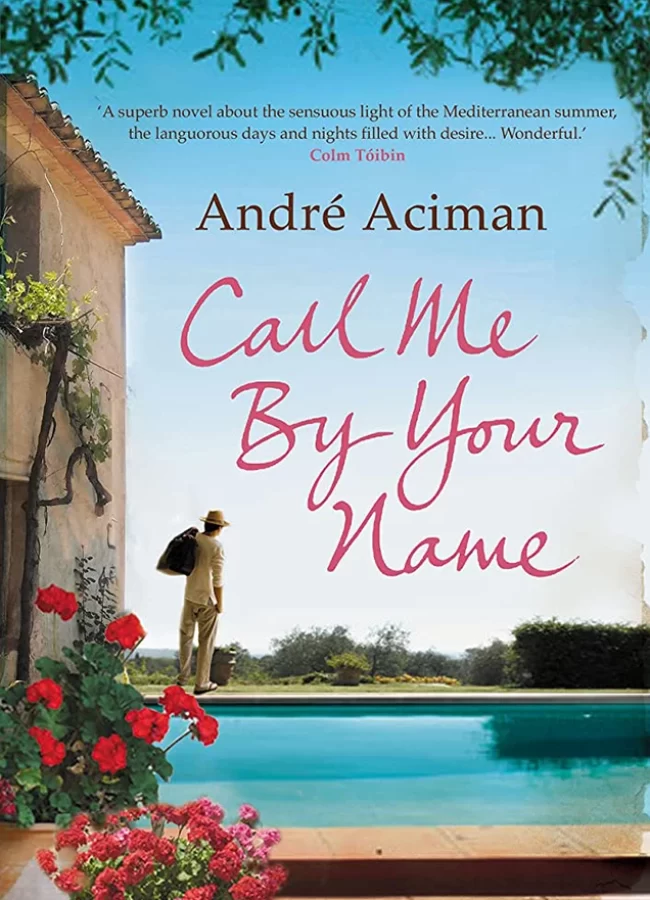 Pin
Pin You’re probably familiar with the award-winning film adaptation of this evocative novel, which launched Timothée Chalamet’s international career back in 2017. Fans of the film will be pleased to hear the book is just as atmospheric and captivating. Set in the Italian Riviera in the mid-80s, Call Me By Your Name is the coming-of-age story of 17-year-old Elio. When he meets the older Oliver, who happens to be staying at his family home for the summer while completing his postdoctoral manuscript (Elio’s father is an eminent scholar), he finds himself falling fast for his handsome good looks and suave ways.
You can practically feel the Italian heat emanating from the pages as the pair’s love story unfolds, with Oliver’s worldliness and experience a seductive contrast to Elio’s own youth and naivety. Sensual, tender and heart-breaking, it’s a soulful elegy to a smouldering lost summer, destined to become a modern classic.
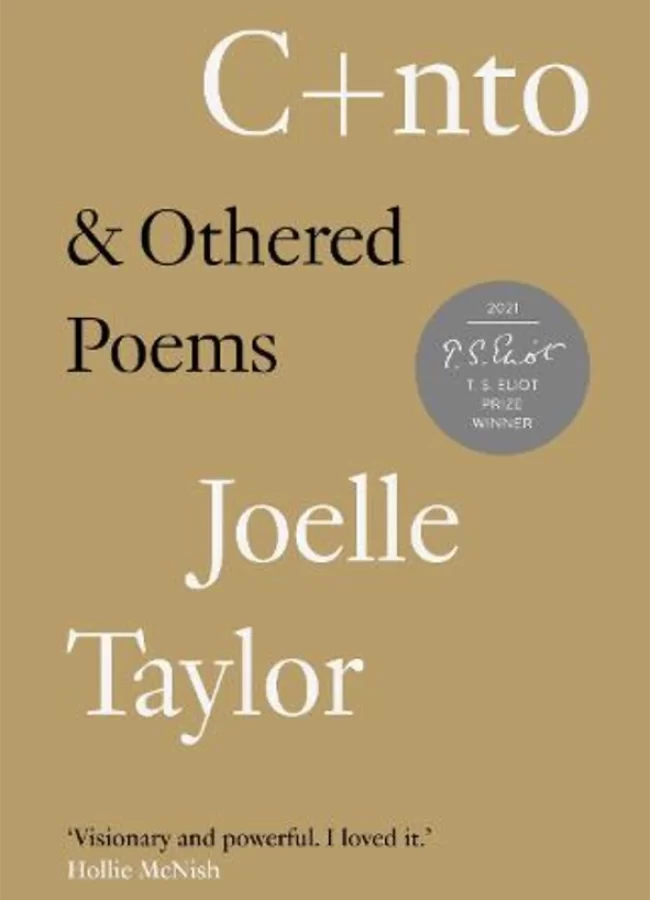 Pin
Pin For those looking for a more lyrical read, consider spending some time with the groundbreaking poems by Joelle Taylor. Winner of the T.S. Eliot Prize 2021, Taylor’s intimate cantos focuses on centring the experience of marginalised peoples, working from the starting point of understanding the female body as a political space.
Punchy and at times explosive, the poems explore the lives of women through the butch counterculture, recounting stories of the protests in the 90s and the fight for self-expression — and survival. Interweaving personal experiences and weaving in imaginative explorations through four female characters, this expansive collection offers an intimate and moving examination of gender and sexuality.
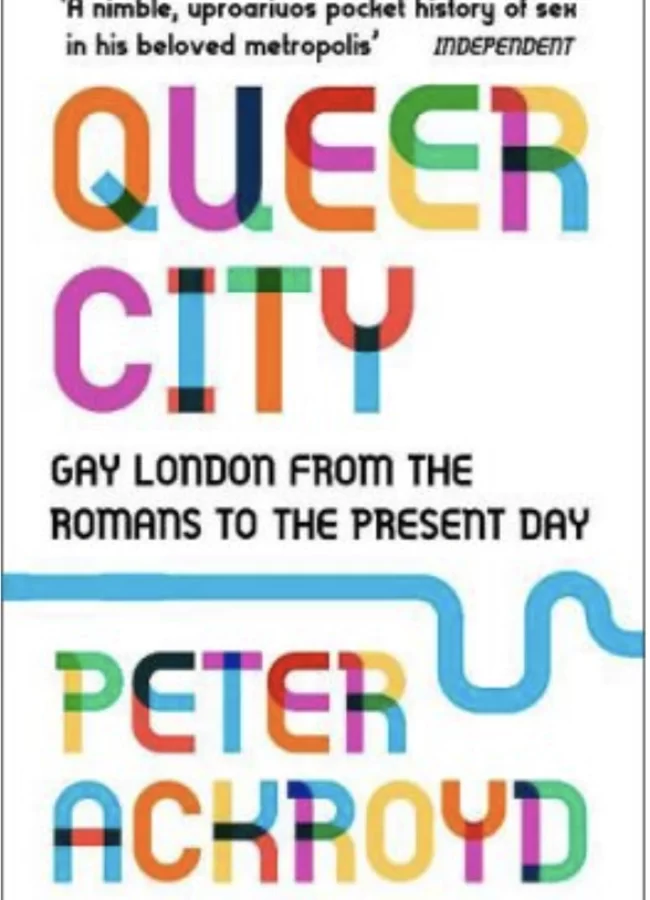 Pin
Pin Vintage Publishing (£12.99)
Biographer Peter Ackroyd CBE has always been fascinated by the history of London and its most significant cultural figures, documenting the lives of the likes of William Blake, Charles Dickens and more. Now, the multi award-winning author has turned his attention to chronicling the city through the lens of its gay population.
Characteristically droll and provocative, the extensive work takes the reader from the sexually liberal brothels of Roman Londinium, to the intolerant and punishing early nineteenth century marked by a frenzy of executions for sodomy, to the liberation in Sixties Soho, to the fight for help and recognition during the AIDS crisis. It’s a brilliant documentation of changing attitudes, changing laws, and the inextricable ties between the capital and gay culture.
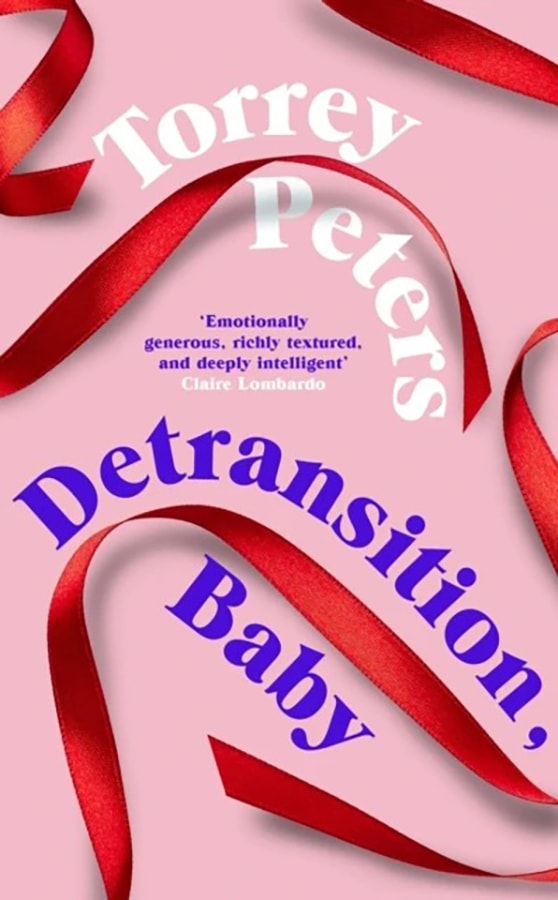 Pin
Pin Torrey Peters is a Brooklyn-based, American writer and author, and her novel, Detransition, Baby, which was longlisted for the Women’s Prize for Fiction, brilliantly and fearlessly navigates the most dangerous taboos around gender, sex, and relationships in a thrillingly original and witty manner.
Peters’s book elegantly plays with the structural conventions of literary realism, and centres on three women navigating queer relationships and parenthood. The narrative follows Ames (formerly “Amy”), who has detransitioned, Reese, a trans woman who wants a baby, and Ames’s pregnant partner, Katrina, who initially doesn’t know about her husband’s history as a trans it-girl.
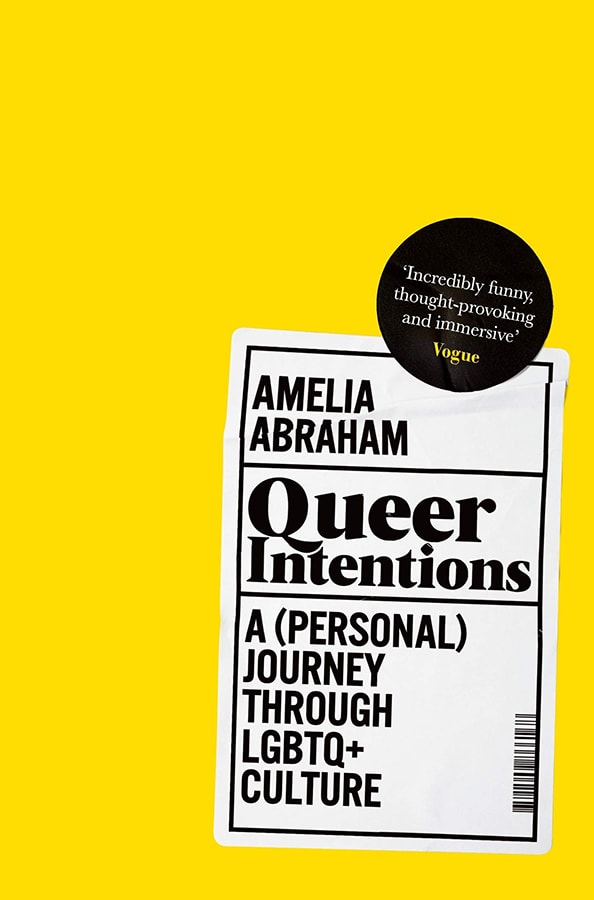 Pin
Pin In this thought-provoking title, Amelia Abraham discusses what it means to be queer today, and how things have changed. But has same-sex marriage, improved media visibility and corporate endorsement helped? At what cost does this acceptance come? And who is getting left behind? These are just some of the questions pondered in Queer Intentions.
Combining intrepid journalism with her own personal experience, Abraham takes the reader on a journey – from Los Angeles to Istanbul, from London to Stockholm and Belgrade – searching for the answers to these challenges faced daily by the LGBTQ+ community.
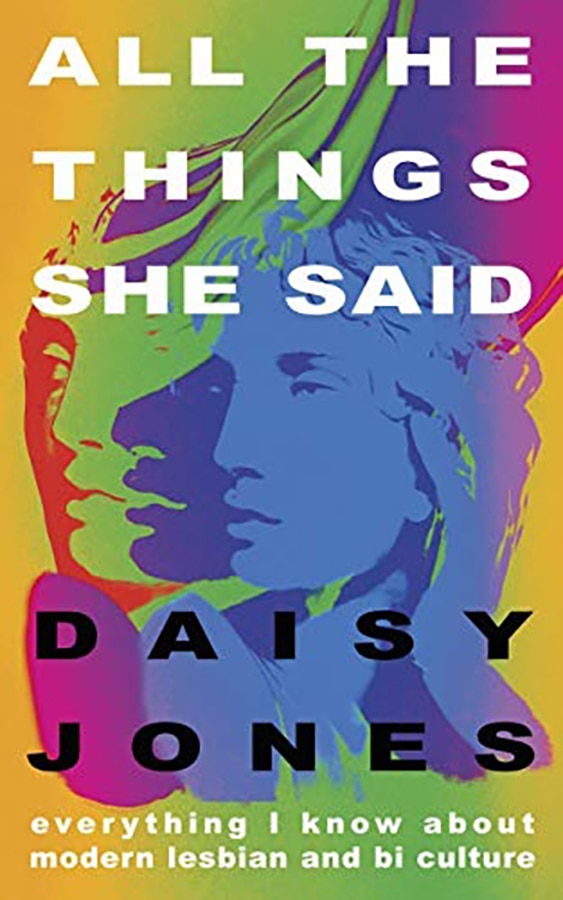 Pin
Pin Daisy Jones is a South London-based writer and editor at VICE, whose work has a particular focus on LGBTQ+ culture, music, the internet and relationships. So naturally her first book, All The Things She Said, would be an exploration of queer culture for women and everyone in between.
Lesbian and bi culture is ever evolving, however, stereotypes continue to be outdated and, undeniably, wrong. Jones picks at the portrayal of queer women in the media, and sheds light on what its like to come out, to date, and how physical nightlife spaces have evolved into online communities, as well as how mental health issues are disproportionatly affecting LGBTQ+ people.
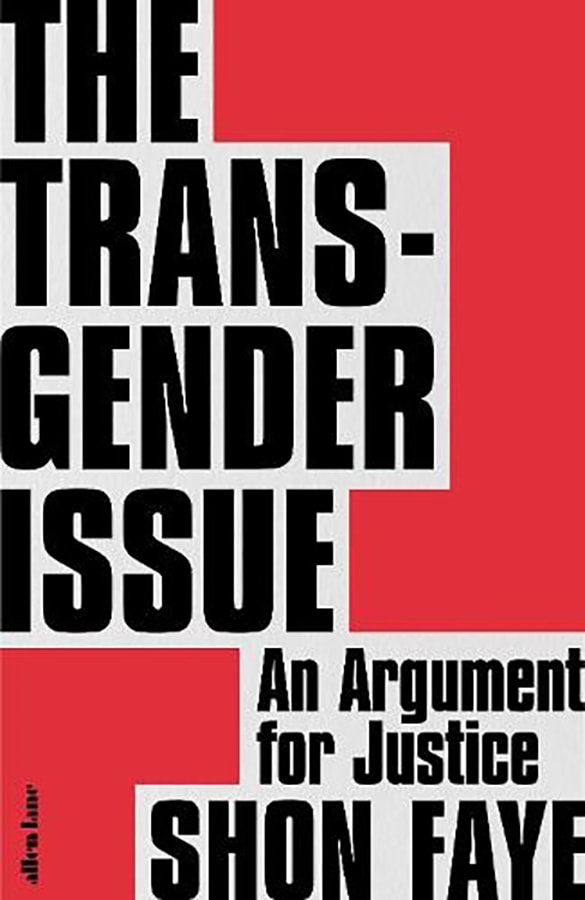 Pin
Pin In this thought-provoking title, Amelia Abraham discusses what it means to be queer today, and how things have changed. But has same-sex marriage, improved media visibility and corporate endorsement helped? At what cost does this acceptance come? And who is getting left behind? These are just some of the questions pondered in Queer Intentions.
Combining intrepid journalism with her own personal experience, Abraham takes the reader on a journey – from Los Angeles to Istanbul, from London to Stockholm and Belgrade – searching for the answers to these challenges faced daily by the LGBTQ+ community.
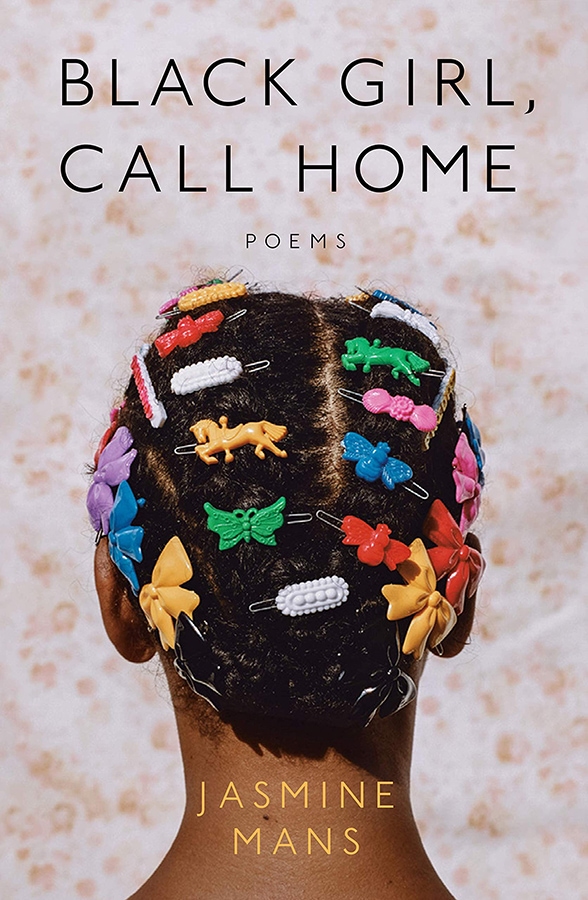 Pin
Pin Spoken word poet Jasmine Mans’ – who hails from Newark, New Jersey – latest, Black Girl, Call Home has received many accolades, including one of the most anticipated books of 2021 by Oprah Magazine. Previously Mans caught attention with her poem and video, Footnotes for Kanye, a cultural commentary on Kanye West in which she aired her grievances with him at marrying Kim Kardashian.
In this collection of poems, however, Mans explores the narratives of different aspects of her identity and the path to adulthood as a young, queer Black woman. Much like her previous work, it is a love letter to any woman on a journey to find truth, belonging, and healing in the world we live in today.
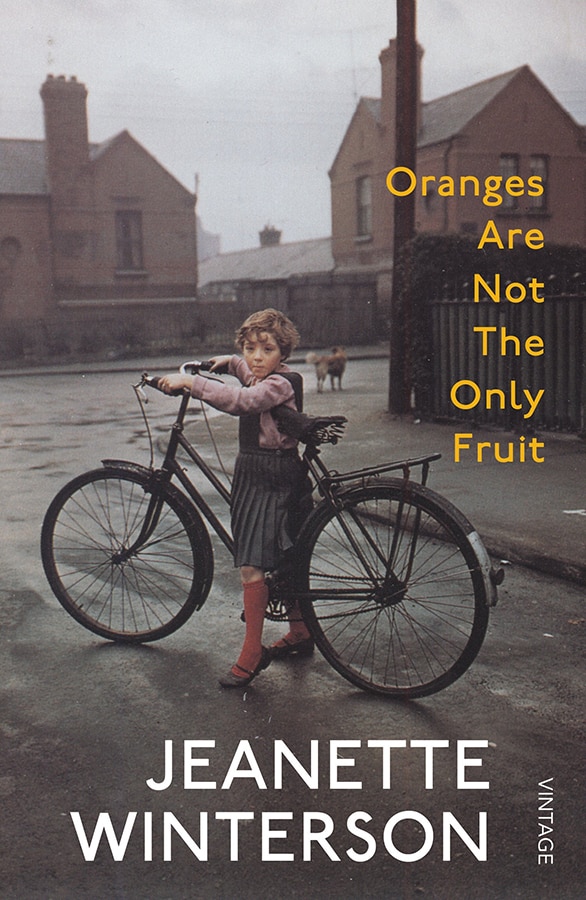 Pin
Pin Jeanette Winterson’s beloved book is a zealous, funny, and poignant retelling of Winterson’s own life that tackles expansive themes of dogmatic religion and burgeoning sexuality. The British writer and activist was first published in 1985, with Oranges Are Not the Only Fruit, her first novel, to critical and international acclaim, winning Winterson the prestigious Whitbread Prize for best first fiction.
In Oranges Are Not the Only Fruit (which was also adapted to a docuseries of the same name by the BBC in 1989), a sixteen-year-old Jeanette decides to leave the church, her home and her family, for the young woman she loves.
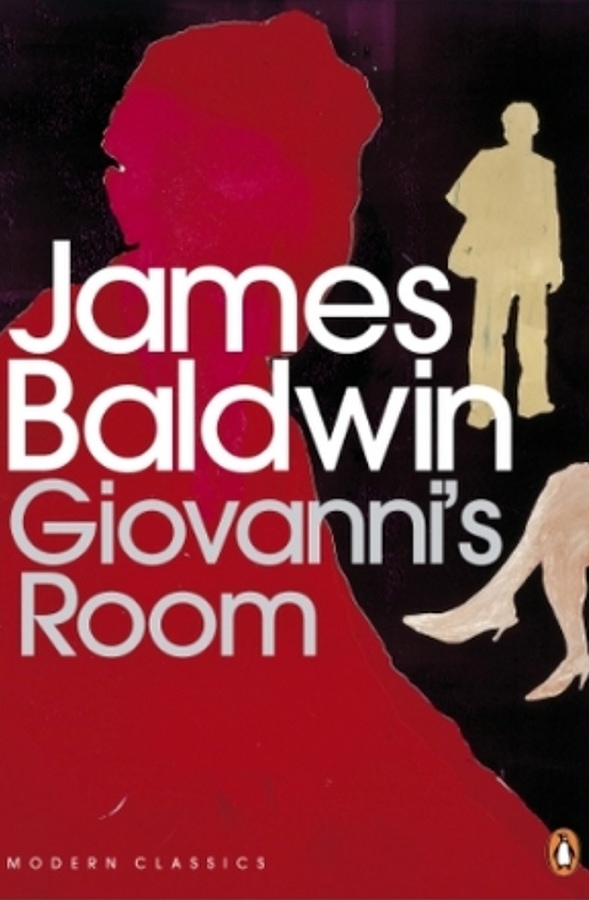 Pin
Pin Originally published in 1956, James Baldwin’s Giovanni’s Room, was beautifully bold and controversial when it came out. The American novelist, essayist, playwright, and poet often offered a vital literary voice during the era of civil rights activism in the 1950s and 1960s.
In this, his haunting second novel, Baldwin tells the story of an American in 1950s Paris, who finds himself unable to repress his impulses, despite his determination to live the conventional life he envisions for himself. It’s an exploration into the mystery of love and passion, and a complex story of death and desire that’s become a pinnacle of LGBTQ+ literacy.
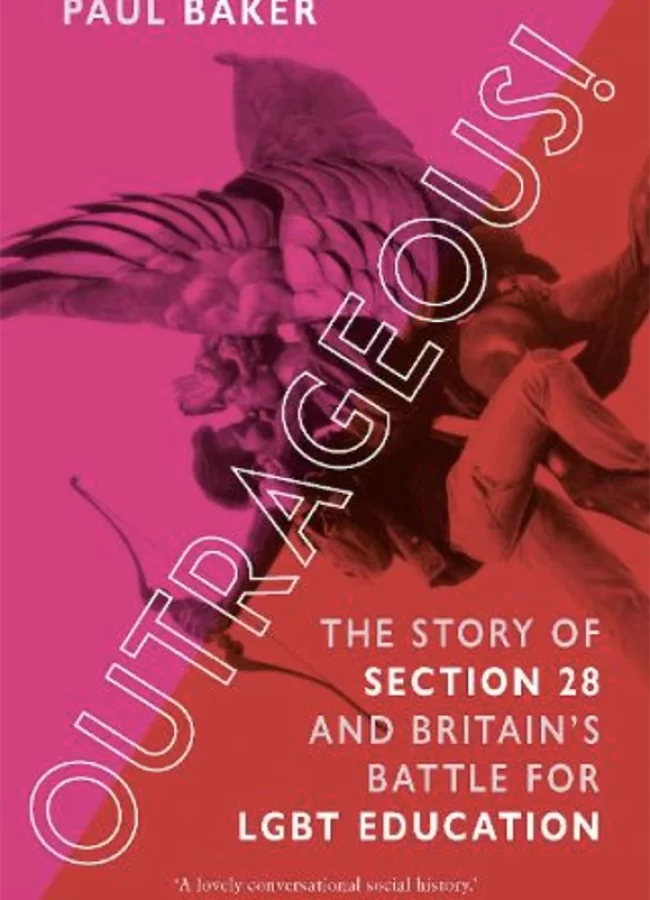 Pin
Pin Reaktion Books (£13.99)
A closely researched, illuminating account of a crucial moment in queer history, Paul Baker’s historic work details the full story of the infamous Section 28, the 1988 UK law banning the teaching ‘of the acceptability of homosexuality’ in schools. Starting with Baker’s personal memories of the law, seeing protestors pushing back against Section 28 on The Six O’Clock News on his 16th birthday, he notes that the very next day it passed into UK law.
In this extensive work, Baker outlines the shockwaves it sent through society, and its particular impact on the LGBTQ+ community. As Baker details, however, Section 28 conversely managed to galvanise the community and its allies, who were finally able to bring about its repeal in the 2000s.
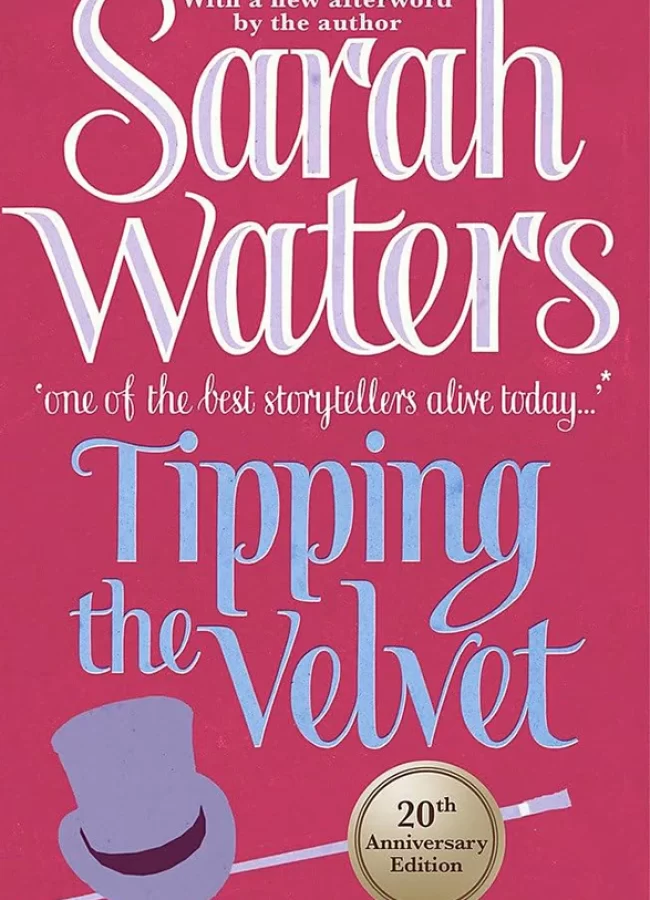 Pin
Pin This is the novel that launched Sarah Waters’ career, with the author going on to become one of Britain’s most successful writers. Set in Victorian London it tells the tale of Nan King, an inexperienced young oyster girl who has her heart set on music hall fame. Everything changes when Nan first sets eyes on Kitty Butler, a much-lauded male impersonator treading the boards in Canterbury.
The pair soon set up their own double act, captivating Leicester Square with their infectious performances. Behind closed doors, they come to admit their attraction to each other and soon embark on a passionate affair. But as their relationship intensifies, it threatens to ruin all of Nan’s hard-won ambitions. A Vaudevillian romp through the roaring Nineties, it became an instant hit when it was first published in 1998 and remains a firm favourite 25 years later.
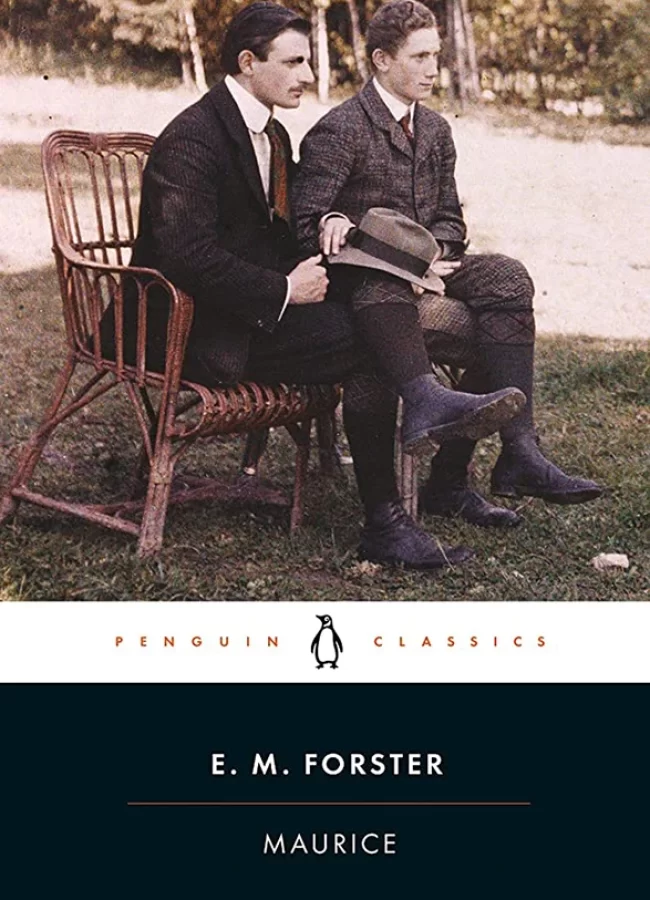 Pin
Pin This intensely personal novel was completed in 1914 but remained unpublished until after Forster’s death in 1970, with Forster being all too aware that if he’d published it as soon as he completed it, it would probably have ended his career. The book offers a deeply autobiographical account of homosexual relationships in an era when love between men was not only stigmatised, but also illegal.
It charts the story of modest and generally conformist Maurice Hall’s sexual awakening, after he finds himself increasingly attracted to his own sex. Through Clive, whom he encounters at Cambridge, and through Alec, the gamekeeper on Clive’s country estate, he is able to open his heart and mind to his own sexual identity, going against the grain of society’s often unspoken rules of class, wealth, and politics in the process.
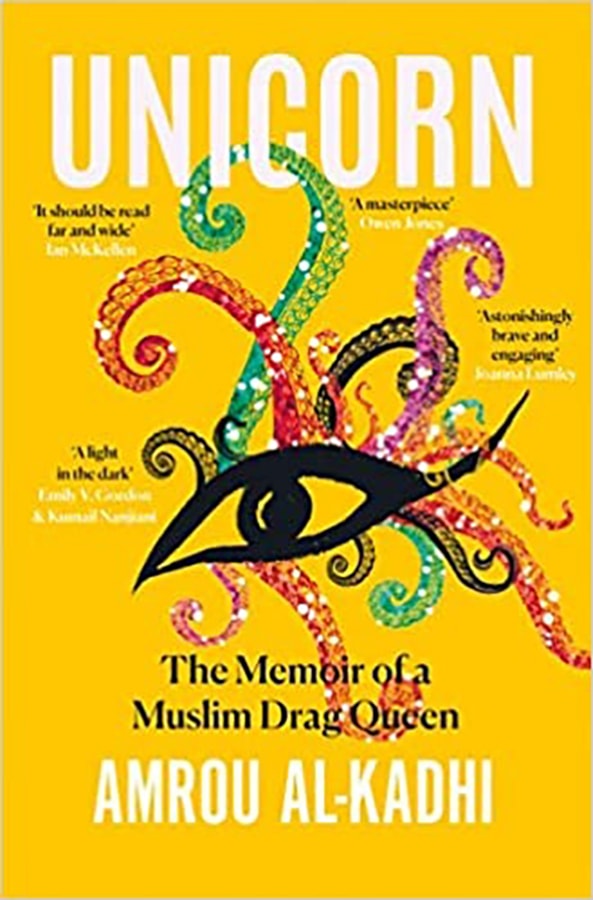 Pin
Pin Amrou Al-Kadhi, a screenwriter 60% of the time, and a drag queen the rest, is unquestionably open and raw in their first book – Al-Kadhi is gender-nonconforming, prefers the pronoun “they,” and goes on to explain and mediate on the subject of gender throughout.
When writing the memoir, Al-Kadhi was 29, looking back at their life, which started in Dubai, then Bahrain, before moving to London. The British Iraqi is gay, muslim, educated at the infamous Eton boarding school for boys, a twin, a writer, an actor and drag performer, so naturally there’s a lot to cover. It starts with Al-Kadhi knowing they were gay when, aged ten, they first laid eyes on Macaulay Culkin in Home Alone – it was love at first sight – and when their parents weren’t too thrilled, they began searching for love and belonging in all the wrong places.
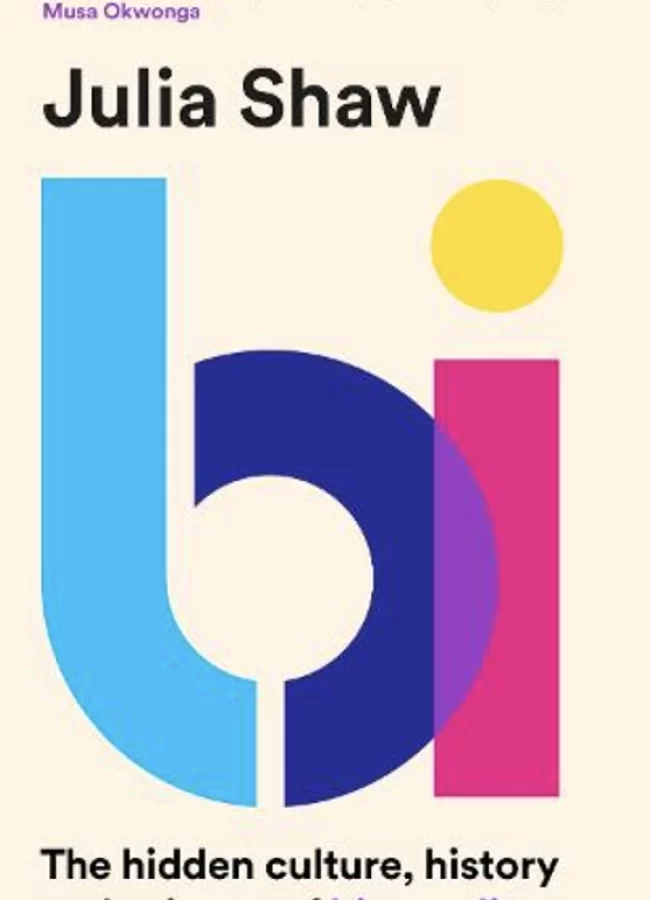 Pin
Pin Canongate Books Ltd (£16.99)
While conversation around LGBTQ+ identity has become far more extensive in recent years, bisexuality still remains largely undiscussed. Drawing on personal experience as well as science and pop culture references, psychological scientist and the bestselling author of Making Evil Dr Julia Shaw offers an insightful and moving exploration of the world’s largest sexual minority.
Beginning with an account of her own experience understanding her bisexuality, Dr Shaw then jumps off to bring an extensive exploration of all that there is to know. From the hunt for a bi gene, to the relationship between bisexuality and consensual non-monogamy, Dr Shaw’s rigorous and expansive work highlights the importance of visibility and the multiple consequences of sexuality in law, life and love.
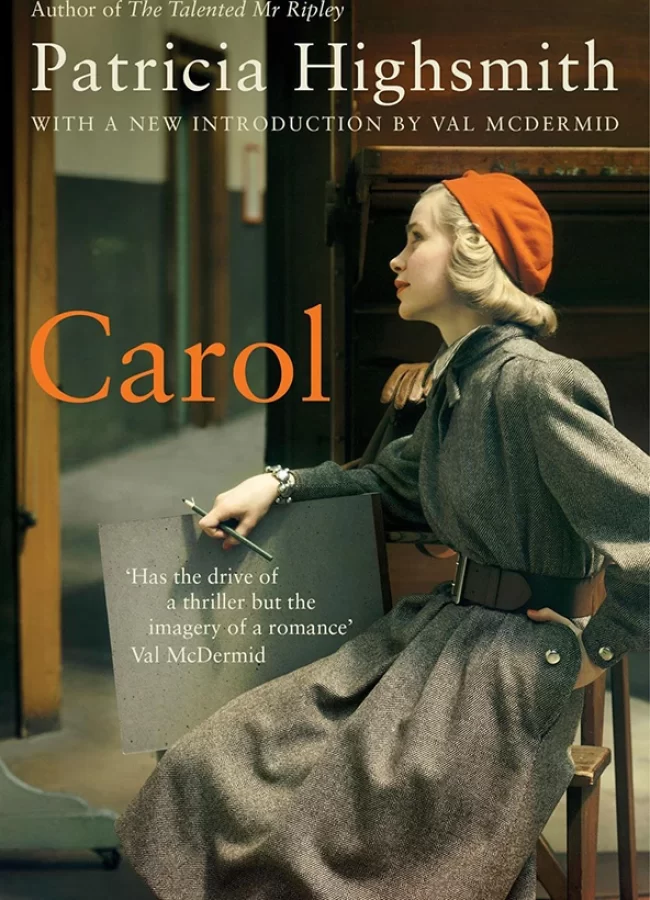 Pin
Pin When Highsmith first published this novel in 1952, she did so under a pseudonym and titled it The Price of Salt, to avoid potential scandal around her own personal life. It was more than worth the risk though, as the book has gone on to become one of her most beloved novels, which in 2015 was turned into a major Hollywood film starring Cate Blanchett and Rooney Mara.
The book follows Therese, an ordinary sales assistant working in a New York department store, whose life is turned upside down when an alluring woman in her thirties walks up to her counter. Therese is wholly unprepared for the first shock of love she feels for Carol, a sophisticated and self-assured divorcee. Highsmith paints a captivating portrait of their love story, set against the backdrop of fifties New York.
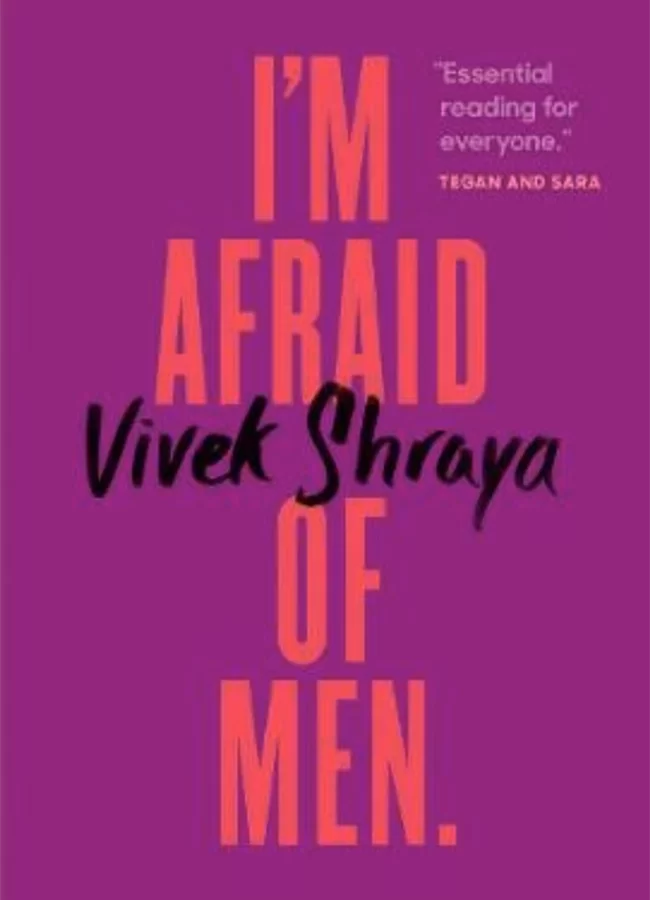 Pin
Pin An essential read for understanding the traumas — both obvious and subtle — experienced by the queer community, Vivek Shraya’s raw work accounts her experience as a trans woman and her experiences with misogyny, homophobia, and transphobia from childhood through to adulthood.
Taking readers from her childhood, where as a young boy she was faced aggression for being too feminine, through to her adulthood, where she was accused of not being feminine enough as a woman, Shraya pulls back the curtain on the full trans experience, detailing the intersection of transphobia and patriarchal attitudes that remain engrained in society. While heartbreaking in its account of Shraya’s traumatic experiences, the pages are also full of hope, offering a public call for us to cherish that which makes us different, instead of punishing it.
